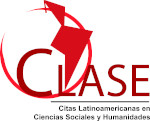Reduzindo a futura lacuna de competências na América Latina e no Caribe por meio de inovações em educação aplicada
DOI:
https://doi.org/10.26849/bts.v44i3.723Palavras-chave:
Aprendizagem de qualidade, Formação e treinamento profissional, Aprendizagem Baseada em ProjetosResumo
O artigo classifica as competências necessárias para o futuro do trabalho identificadas em pesquisas recentes, lideradas pela Organização Internacional do Trabalho (OIT), pelo Centro Interamericano para o Desenvolvimento do Conhecimento na Formação Profissional (Cinterfor) e por outras instituições. Em seguida, recomenda que a lacuna de competências no mercado de trabalho da América Latina e no Caribe seja reduzida pela inovação das instituições de Educação Profissional. Com esse empenho, propõe que o aprendizado baseado em problemas e pedagogias de aprendizagem de qualidade sejam métodos fundamentais de ensino para o desempenho do aluno em competências socioemocionais.
Downloads
Referências
AXMANN, M. Quality apprenticeships: a practical approach for Latin America and the Caribbean. Montevideo: ILO/Cinterfor, 2018. Forthcoming.
BUSSO, M.; AMBRUS, S. Latin America, the Caribbean and PISA: the long road ahead. In: IDB. Ideas matter. [S.l.], Dec. 13, 2016. Disponível em: <https://blogs.iadb.org/ideasmatter/2016/12/13/latin-america-the-caribbean-and-pisa-the-longroad-ahead/>. Acesso em: 21 nov. 2018.
CALVO SANTANA, A.; COTO CALDERÓN, J. A.; VARGAS JIMÉNEZ, L.
Capacidades actitudinales por incorporar en la formación profesional basada en competencias laborales del INA. San José: Instituto Nacional de Aprendizaje, 2016.
CASTRO, C. M.; NAVARRO, J. C. Will the invisible hand fix private higher education in Latin America? Ensaio: avaliação e políticas públicas em educação, Rio de Janeiro, v. 25, n. 96, p. 770-797, 2017.
CINTERFOR. El futuro de la formación profesional en América Latina y el Caribe en el SXXI. Montevideo, 2016. Unpublished research report. COMISIÓN DEL SISTEMA NACIONAL DE CERTIFICACIÓN DE COMPETENCIAS LABORALES (Chile). Catálogo de competencias transversales para la empleabilidad. Santiago: Chilevalora: Sence, 2015.
ECLAC. Structural change for equality: an integrated approach to development: Thirty-Fourth Session of ECLAC. San Salvador: Eclac, 2012.
INTERNATIONAL LABOUR OFFICE. Employment and social protection in the new demographic context. Geneva: ILO, Apr. 2013.
INTERNATIONAL LABOUR OFFICE. Overview of apprenticeship systems and issues: ILO contribution to the G 20 task force on employment. Geneva: ILO, Nov. 2012.
JONASSEN, D. Designing constructivist learning environments. Instructional-Design Theories and Models, [s.l.], v. 2, p. 215-239, 1999.
KNOLL, M. The project method: its vocational education origin and international development. Journal of Industrial Teacher Education, Blacksburg, VA, v. 34, n. 3, p. 59-80, Spring 1997.
KOLB, D. A. Experiential learning: experience as the source of learning and development. Englewood Cliffs: Prentice Hall, 1984. p. 20-38.
LERMAN, R. Do firms benefit from apprenticeship investments? IZA World of Labour, Bonn, May 2014.
MELGUIZO, Á.; PEREA, J. Mind the skills gap!: regional and industry patterns in emerging economies. Paris: OECD Publ., 2016. (OECD Development Centre Working Papers, n. 329).
MERRILL, M. D. First principles of instruction. Educational Technology Research and Development, Heidelberg, v. 50, n. 3, p. 43-59, 2002.
OECD. Getting skills right: Chile. Paris: OECD Publ., 2018.
OGUZ-UNVER, A.; ARABACIOĞLU, S. A comparison of inquiry-based learning (IBL), problem-based learning (PBL) and project-based learning (PJBL) in science education. Academia Journal of Educational Research, v. 2, n. 7, p. 120-128, July 2014.
PRINCE, M. Does active learning work?: a review of the research. Journal of Engineering Education, v. 93, n. 3, p. 223-231, 2004.
RINCON, H. Pasado, presente y futuro de la formación pasada en proyectos en el SENA. Bogotá: Sena, 2018.
SALAZAR-XIRINACHS, J. M.; VARGAS ZÚÑIGA, F. The future of vocational training in Latin America and the Caribbean: overview and strengthening guidelines. Montevideo: OIT/Cinterfor, 2017.
THOMAS, J. W. A review of research on project-based learning. San Rafael, CA: Autodesk Foundation, 2000.
VAN BUER, J. Transdisciplinary skills: new perspectives for old virtues between acquisition of skills and profession. 2013. Conference presentation.
VARGAS ZUÑIGA, F.; CARZOGLIO, L. La brecha de habilidades en América Latina: desencuentros y hallazgos. Montevideo: OI/Cinterfor, 2017.
WORLD ECONOMIC FORUM. Towards a reskilling revolution: the future of jobs for all. In collaboration with The Boston Consulting Group. Geneva: World Economic Forum, Jan. 2018.
Downloads
Como Citar
Edição
Seção
Licença
Compromisso de Disponibilização dos Trabalhos em Licença Creative Commons
O Boletim Técnico do Senac será disponibilizado por meio da licença BY NC, de forma gratuita e sem fins comerciais.
Em vista disso, ao submeter seus trabalhos para avaliação, os autores se comprometem a providenciarem a disponibilização de seus trabalhos pela licença Creative Commons BY NC junto ao website <https://br.creativecommons.org>, dispensando, assim, a necessidade da assinatura de qualquer documento ou contrato com o Senac para regular a disponibilização de seus trabalhos no Boletim Técnico do Senac.
O(s) autor(es)declaram, ainda, que reconhecem o Boletim Técnico do Senac como periódico eletrônico de acesso livre, cujas Políticas e Diretrizes para Autores estão à disposição para conhecimento em seu sítio oficial na web, a saber – www.bts.senac.br – e que as mesmas podem ser modificadas a qualquer tempo, ficando imediatamente qualquer nova condição publicada on-line.



















